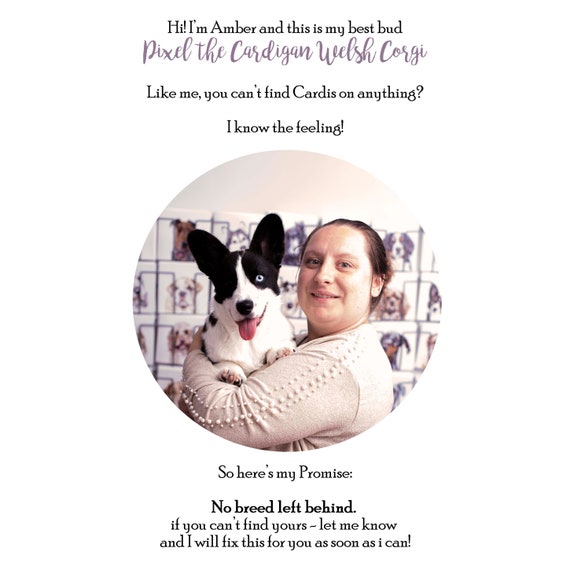
Credit: www.etsy.com
About the Icelandic Sheepdog
The Icelandic Sheepdog, also known as the Iceland Dog or Icelandic Spitz, is a breed of dog that originated in Iceland. This small to medium-sized dog is known for its lively and friendly temperament, making it a popular choice for families and individuals alike.
Icelandic Sheepdogs have a thick double coat with a dense undercoat, which allows them to withstand the harsh and cold climate of Iceland. They come in various color combinations, including shades of brown, black, and gray, with white markings.

Credit: issuu.com
Temperament and Personality
Icelandic Sheepdogs are known for their friendly and outgoing nature. They are very sociable and get along well with children, making them excellent family pets. They are intelligent and eager to please, which makes training relatively easy.
Despite their small size, Icelandic Sheepdogs are hardworking and were originally bred to herd sheep and other livestock. This has influenced their temperament, as they are naturally alert, energetic, and have a strong herding instinct. They love being part of an active family and enjoy participating in various activities such as agility, obedience, and tracking.
Caring for an Icelandic Sheepdog
The Icelandic Sheepdog requires regular exercise to keep its body and mind stimulated. Daily walks or playtime in a securely fenced yard should be incorporated into their routine. They also enjoy mentally stimulating activities, such as puzzle toys or obedience training.
Due to their dense double coat, Icelandic Sheepdogs need regular brushing to prevent matting and keep their coat healthy. During shedding seasons, more frequent brushing may be necessary to manage the amount of loose hair. Weekly ear cleaning, nail trimming, and teeth brushing are also essential parts of their grooming routine.
Health and Lifespan
Icelandic Sheepdogs are generally healthy dogs with few breed-specific health issues. However, like all breeds, they are prone to certain conditions. Common health concerns include hip dysplasia, patellar luxation, and hereditary eye diseases. It is important to choose a reputable breeder who conducts health screenings on their breeding dogs to minimize the risk of inheriting such conditions.
With proper care and regular veterinary check-ups, Icelandic Sheepdogs have an average lifespan of 12 to 15 years.
Find an Icelandic Sheepdog
If you are interested in adding an Icelandic Sheepdog to your family, it is essential to find a reputable breeder who prioritizes the health and welfare of their dogs. You can search for breeders through local breed clubs or reputable online directories.
Additionally, consider checking rescue organizations and shelters as there may be Icelandic Sheepdogs in need of a loving home. Adopting a dog can be a fulfilling experience and give a second chance to a wonderful companion.
In Conclusion
The Icelandic Sheepdog is a lively, friendly, and intelligent breed that makes an excellent addition to a loving family. With their sociable nature and herding instincts, they thrive when given opportunities to engage in various activities and spend quality time with their owners. Consider this breed if you are looking for a loyal companion who will bring joy and happiness to your home.
Frequently Asked Questions On Icelandic Sheepdog : Unleashing The Power And Charm Of This Lively Breed
How Big Do Icelandic Sheepdogs Grow?
Icelandic Sheepdogs typically grow to be small to medium-sized dogs, weighing between 20-30 pounds and standing around 12-16 inches tall at the shoulder.
What Is The Temperament Of Icelandic Sheepdogs?
Icelandic Sheepdogs are known for their friendly and cheerful temperament. They are intelligent, alert, and make great companions for families. They can be a little reserved with strangers but are generally good with other pets.
What Is The Grooming Routine For Icelandic Sheepdogs?
The Icelandic Sheepdog has a double coat, which requires regular grooming to keep it healthy and beautiful. Brushing their fur once or twice a week will help remove loose hair and prevent matting. Additionally, regular bathing, nail trimming, and teeth cleaning are part of their grooming routine.












